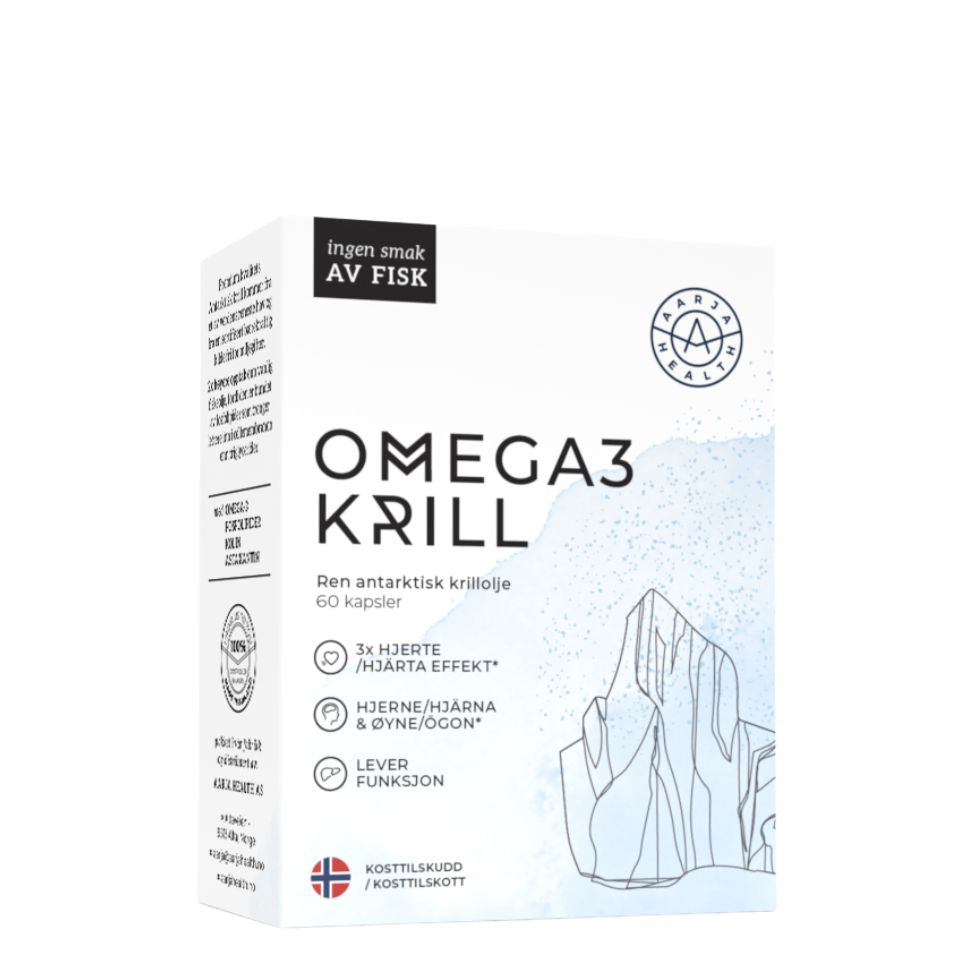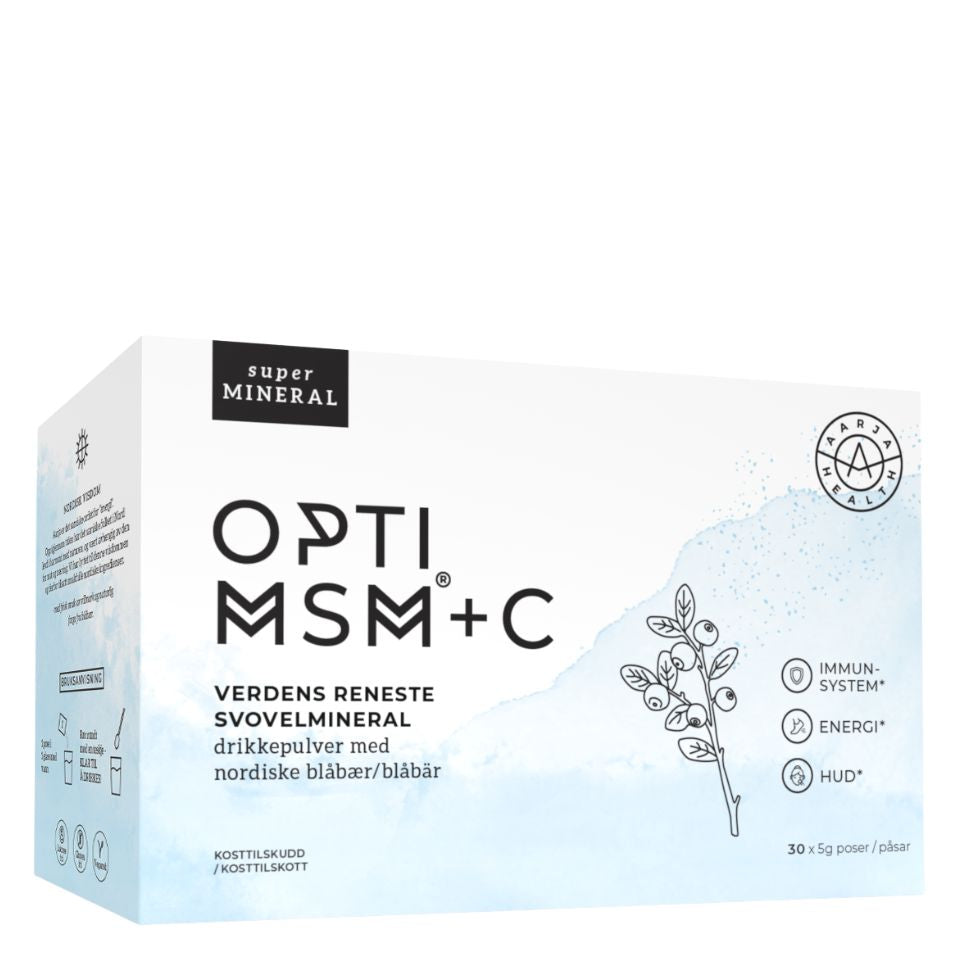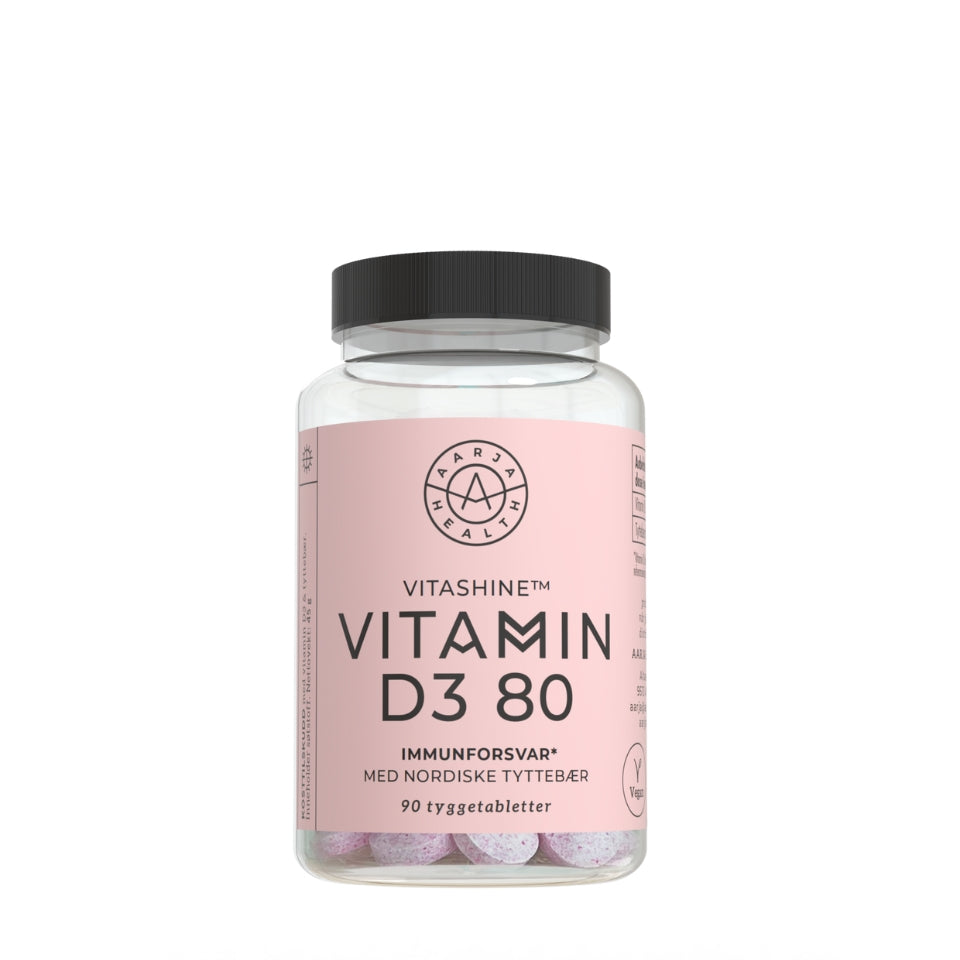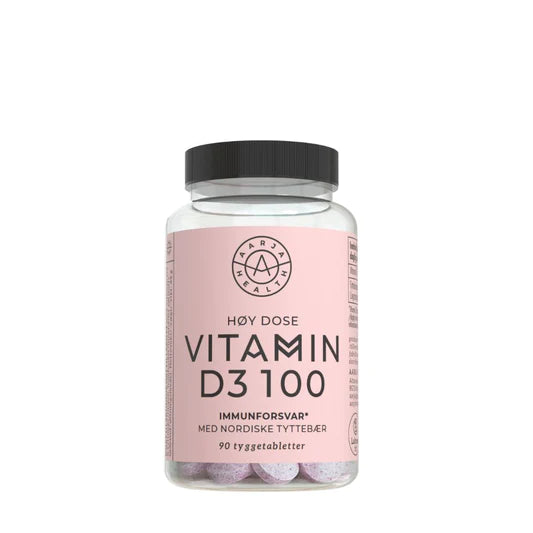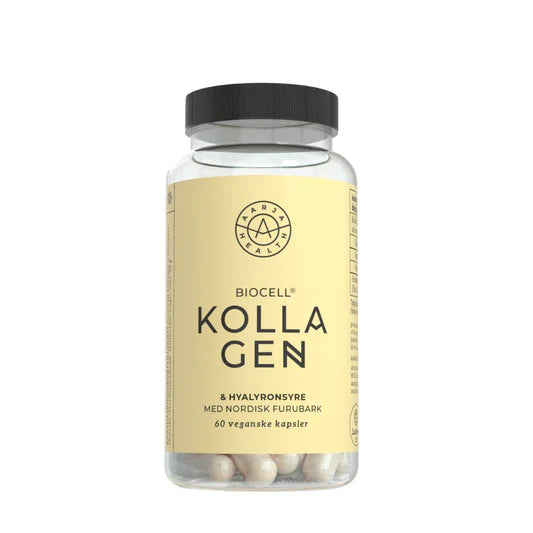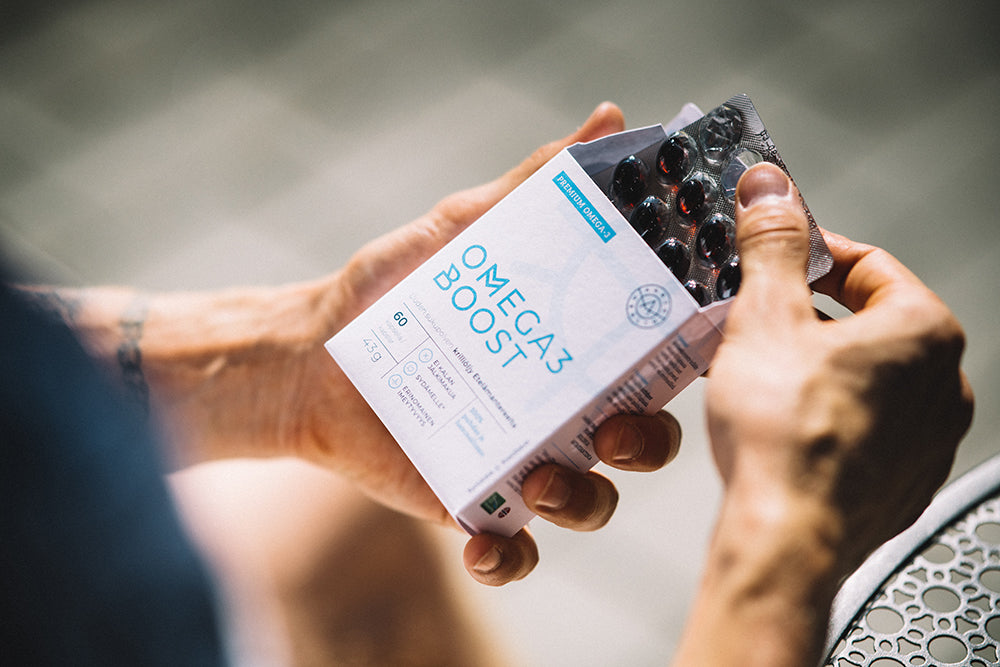
OMEGA-3 EPA AND DHA - WHY ARE BODY FATS IMPORTANT?
The quality of fats is important for the normal functions of the human body. There are four types of fats that humans get through the diet: saturated fats, monounsaturated fats, polyunsaturated fats and the harmful group of fats - trans fats.
But which type of fat is good for your health? Saturated fats are not necessarily harmful, but a diet rich in saturated fats can increase harmful LDL cholesterol in the blood. Polyunsaturated and monounsaturated fats are the healthiest types of fat, and polyunsaturated fats (such as fish and krill oil) are the most essential fats for humans, lowering levels of LDL cholesterol, for example, if used in place of saturated fats. There are two types of polyunsaturated fats: omega-3 and omega-6 fatty acids.
Below we explain to you the health benefits of omega-3 fatty acids called EPA, DHA and ALA.
IMPORTANT OMEGA-3 FATTY ACIDS DHA, EPA AND ALA
Fish is traditionally known as a good food source of polyunsaturated omega-3 fatty acids. Sources of omega-3s usually contain several different fatty acids and you may have heard of the most beneficial ones - docosahexaenoic acid (DHA), eicosapentaenoic acid (EPA) and alpha-linolenic acid (ALA). These ALA, DHA and EPA are long-chain fatty acids with many researched health benefits.
THE BENEFITS OF THE OMEGA-3 FATTY ACIDS EPA, DHA AND ALA
They are all essential fatty acids for normal health. EPA and DHA have many EFSA (European Food Safety Authority) approved health benefits which we have listed below:
EPA and DHA contribute to normal eye and brain health*.
Did you know that your brain consists of almost 60% fat and that DHA is the most important fatty acid in the nervous system, brain and eyes? The highest concentration of DHA in the body is found in the retina, while it plays an important role in healthy vision. A daily diet rich in omega-3 sources helps maintain healthy vision and normal brain function.
EPA and DHA contribute to heart and blood health*.
It is scientifically proven that DHA contributes to maintaining normal triglyceride levels in the blood and that the daily intake of DHA and EPA together contributes to normal blood pressure. These effective fatty acids are also good for maintaining fasting blood triglyceride levels, and omega-3 fatty acids are especially good for a healthy heart.
They are good for normal brain and vision development in babies and fetuses*.
Consumption of omega-3 sources is vital for pregnant women because the body is likely to need more omega-3 fatty acids (especially EPA and DHA) during pregnancy to support fetal growth. EPA and DHA have been shown to contribute particularly to the normal development of the fetal brain and eyes. The common reason for a deficit of omega-3 fatty acids during pregnancy is related to concerns about the negative effects of mercury.
ALA is good for maintaining normal blood cholesterol levels.
And for vegans and people allergic to fish or shellfish, ALA is especially important, as it can convert small amounts of fatty acids into EPA and DHA form. If you are vegan, your diet should consist of ALA so that you get enough of these fatty acids.
KRILL OIL CAPSULES TO SUPPORT THE INTAKE OF OMEGA-3
Krill oil is an excellent source of the omega-3 fatty acids EPA and DHA. What makes krill oil superior to many other fish oil-based omega-3 supplements is that its fatty acids are bound to phospholipids. It is highly bioavailable, does not cause fishy regurgitation and naturally contains astaxanthin and choline. Astaxanthin is a strong antioxidant and protects the krill oil capsules from oxidation in a natural way - meaning no preservatives are needed. Choline is an important nutrient for the body.
WHAT ARE GOOD FOOD SOURCES OF OMEGA-3?
The best sources of omega-3 fatty acids are fatty fish such as salmon, mackerel and sea bass, which are rich in EPA and DHA fatty acids. The best vegan sources that are rich in ALA are, for example, walnuts, hemp seeds and flax seeds.
WHEN SHOULD I TAKE OMEGA3 SUPPLEMENTS?
Omega-3 supplements can be taken at any time during the day. However, we recommend that you take them with food and preferably with vitamin D. If you split your vitamin intake throughout the day, Omega-3 supplements may be most ideal to take, for example at lunch and dinner. Read more about which vitamins and supplements to take and when from our other blog.
Aarja's 100% natural, pure and sustainable OMEGA3 BOOST Krill Oil is a high quality omega-3 source with superior absorption and amazing vanilla flavor.
Read more and shop Aarja Health's products.
But which type of fat is good for your health? Saturated fats are not necessarily harmful, but a diet rich in saturated fats can increase harmful LDL cholesterol in the blood. Polyunsaturated and monounsaturated fats are the healthiest types of fat, and polyunsaturated fats (such as fish and krill oil) are the most essential fats for humans, lowering levels of LDL cholesterol, for example, if used in place of saturated fats. There are two types of polyunsaturated fats: omega-3 and omega-6 fatty acids.
Below we explain to you the health benefits of omega-3 fatty acids called EPA, DHA and ALA.
IMPORTANT OMEGA-3 FATTY ACIDS DHA, EPA AND ALA
Fish is traditionally known as a good food source of polyunsaturated omega-3 fatty acids. Sources of omega-3s usually contain several different fatty acids and you may have heard of the most beneficial ones - docosahexaenoic acid (DHA), eicosapentaenoic acid (EPA) and alpha-linolenic acid (ALA). These ALA, DHA and EPA are long-chain fatty acids with many researched health benefits.
THE BENEFITS OF THE OMEGA-3 FATTY ACIDS EPA, DHA AND ALA
They are all essential fatty acids for normal health. EPA and DHA have many EFSA (European Food Safety Authority) approved health benefits which we have listed below:
EPA and DHA contribute to normal eye and brain health*.
Did you know that your brain consists of almost 60% fat and that DHA is the most important fatty acid in the nervous system, brain and eyes? The highest concentration of DHA in the body is found in the retina, while it plays an important role in healthy vision. A daily diet rich in omega-3 sources helps maintain healthy vision and normal brain function.
EPA and DHA contribute to heart and blood health*.
It is scientifically proven that DHA contributes to maintaining normal triglyceride levels in the blood and that the daily intake of DHA and EPA together contributes to normal blood pressure. These effective fatty acids are also good for maintaining fasting blood triglyceride levels, and omega-3 fatty acids are especially good for a healthy heart.
They are good for normal brain and vision development in babies and fetuses*.
Consumption of omega-3 sources is vital for pregnant women because the body is likely to need more omega-3 fatty acids (especially EPA and DHA) during pregnancy to support fetal growth. EPA and DHA have been shown to contribute particularly to the normal development of the fetal brain and eyes. The common reason for a deficit of omega-3 fatty acids during pregnancy is related to concerns about the negative effects of mercury.
ALA is good for maintaining normal blood cholesterol levels.
And for vegans and people allergic to fish or shellfish, ALA is especially important, as it can convert small amounts of fatty acids into EPA and DHA form. If you are vegan, your diet should consist of ALA so that you get enough of these fatty acids.
KRILL OIL CAPSULES TO SUPPORT THE INTAKE OF OMEGA-3
Krill oil is an excellent source of the omega-3 fatty acids EPA and DHA. What makes krill oil superior to many other fish oil-based omega-3 supplements is that its fatty acids are bound to phospholipids. It is highly bioavailable, does not cause fishy regurgitation and naturally contains astaxanthin and choline. Astaxanthin is a strong antioxidant and protects the krill oil capsules from oxidation in a natural way - meaning no preservatives are needed. Choline is an important nutrient for the body.
WHAT ARE GOOD FOOD SOURCES OF OMEGA-3?
The best sources of omega-3 fatty acids are fatty fish such as salmon, mackerel and sea bass, which are rich in EPA and DHA fatty acids. The best vegan sources that are rich in ALA are, for example, walnuts, hemp seeds and flax seeds.
WHEN SHOULD I TAKE OMEGA3 SUPPLEMENTS?
Omega-3 supplements can be taken at any time during the day. However, we recommend that you take them with food and preferably with vitamin D. If you split your vitamin intake throughout the day, Omega-3 supplements may be most ideal to take, for example at lunch and dinner. Read more about which vitamins and supplements to take and when from our other blog.
Aarja's 100% natural, pure and sustainable OMEGA3 BOOST Krill Oil is a high quality omega-3 source with superior absorption and amazing vanilla flavor.
Read more and shop Aarja Health's products.


